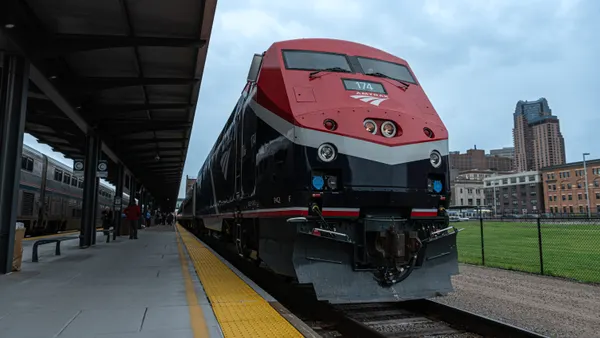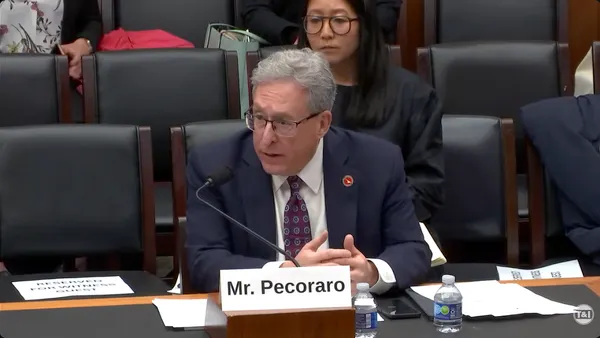Dive Brief:
- Infrastructure engineering firm HNTB conducted a new survey that found just over half (51%) of respondents believe autonomous vehicles (AVs) will be safer than people-driven vehicles, and 57% would be willing to ride in them.
- The survey found that 58% of people think AVs will be commonplace on American streets within 10 years. That’s down from the 70% in the 2018 HNTB survey. The poll is based on results from a nationwide sample of 1,018 Americans surveyed between April 5 and April 8, 2019. The margin of error is +/- 3.1%.
- Safety remained a concern among respondents: 91% said that AVs should be required to have a person on board who could override the automated driving software in case of emergency. Nearly two-thirds (63%) of respondents also said they were concerned about protecting data generated by AVs.
Dive Insight:
Consumers continue to have mixed feelings toward AVs, even as automakers put more of them on public streets and publicize their progress toward fully self-driving vehicles.
The finding that just over half of respondents would ride in an AV is backed up by other polls over the last year. A March AAA survey found that 71% of people would be scared to ride in an AV; a Reuters/Ipsos poll in April found that half of respondents felt AVs would be more dangerous than human-controlled ones.
The decline in people who think AVs will be commonplace is surprising, since their use on public roads has exploded since the last HNTB survey was taken. Waymo launched a self-driving taxi service in Arizona in December, and recently expanded it to Lyft users to broaden public knowledge of the technology. Several companies and cities have held public demonstrations of AVs, and states like California, Arizona and Pennsylvania have encouraged their testing on public roads. Only 52% of respondents in the latest survey said they were knowledgeable about AVs.
High-profile accidents, like the incident in Tempe, AZ in which an Uber self-driving car struck and killed a pedestrian last spring, have dampened public enthusiasm and could contribute to the skepticism. The fact that safety and data security were highly ranked as concerns indicates that automakers still have work to do to convince consumers that the technology is trustworthy.
Still, respondents did recognize some of the benefits. Increased mobility for the elderly or disabled was cited by 52% as an important benefit, while 43% said reduced accidents and increased safety would be a net positive.











